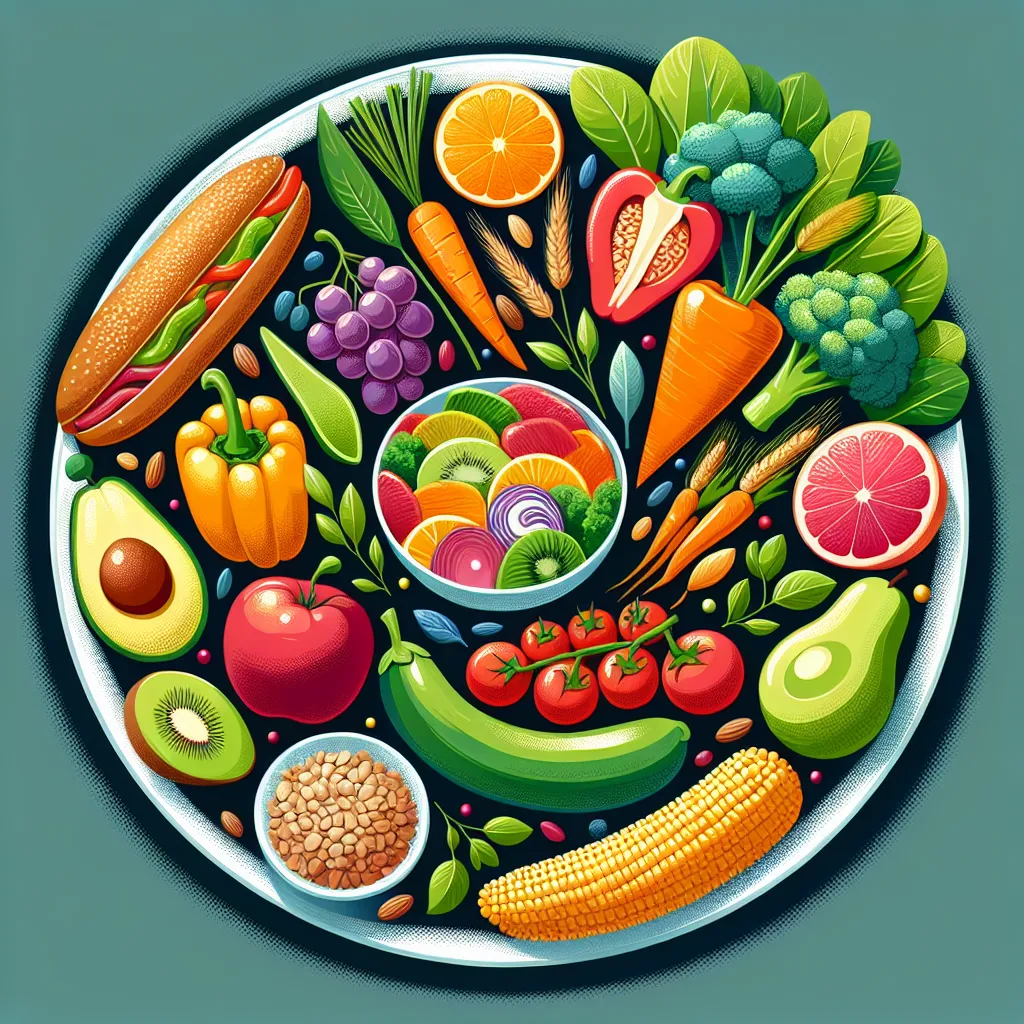Understanding the Principles of Nutrient-Rich Balanced Meals
When it comes to creating nutrient-rich balanced meals, understanding the principles behind it is crucial. A well-balanced meal should incorporate essential nutrients such as carbohydrates, proteins, healthy fats, vitamins, and minerals. These components play a vital role in supporting overall health and well-being.
Carbohydrates are the body’s primary source of energy and can be found in foods like whole grains, fruits, and vegetables. Proteins are essential for building and repairing tissues, and can be sourced from lean meats, fish, eggs, and plant-based sources such as tofu and legumes. Incorporating healthy fats from sources like avocados, nuts, and olive oil is important for heart health and nutrient absorption.
Vitamins and minerals, found abundantly in colorful fruits and vegetables, are crucial for various bodily functions such as immune support, bone health, and energy production. A balanced meal should also include an adequate amount of fiber, which aids in digestion and promotes a feeling of fullness.
By understanding the principles of nutrient-rich balanced meals and the role each component plays in nourishing the body, individuals can make informed and intentional choices when planning their daily meals.
Incorporating Colorful Ingredients for a Balanced Plate
Creating nutrient-rich, balanced meals is essential for maintaining a healthy lifestyle. One key aspect of achieving this balance is incorporating a variety of colorful ingredients into your meals. Fruits and vegetables of different colors not only make your plate visually appealing but also provide a diverse array of essential vitamins, minerals, and antioxidants.
When planning your meals, aim to include a rainbow of colors, such as vibrant red tomatoes, leafy green spinach, deep purple eggplants, bright orange carrots, and sunny yellow peppers. Each color represents a unique set of nutrients that contribute to overall health and well-being.
Red fruits and vegetables like tomatoes and red bell peppers are rich in lycopene and anthocyanins, which support heart health and reduce the risk of certain cancers. Green vegetables such as kale and broccoli are packed with chlorophyll, lutein, and vitamin K, promoting strong bones and a healthy immune system. Purple and blue-hued foods like blueberries and purple cabbage contain powerful antioxidants that protect cells from damage and support brain health.
Incorporating a variety of colorful ingredients into your meals ensures that you are getting a wide range of nutrients, and it also adds an element of fun and creativity to your cooking. By embracing the natural hues of different fruits and vegetables, you can easily create visually stunning and nutritionally balanced meals that nourish both the body and the soul.
Next time you plan your meals, remember: the more colors on your plate, the more diverse and balanced your nutrient intake will be.
Quick and Easy Meal Prep Tips for Nutrient-Rich Dishes
Creating nutrient-rich balanced meals is essential for maintaining a healthy lifestyle. Quick and easy meal prep tips can help you incorporate a variety of nutrients into your dishes without spending hours in the kitchen. When planning your meals, consider including a mix of lean proteins, whole grains, healthy fats, and a colorful array of fruits and vegetables. These components provide essential nutrients such as vitamins, minerals, fiber, and antioxidants that support overall health.
One effective strategy for nutrient-rich meal prep is to batch cook staple ingredients such as quinoa, brown rice, or grilled chicken at the beginning of the week. These versatile elements can form the base of many different dishes, saving you time and effort during busy days. Additionally, pre-cutting and washing fruits and vegetables makes it easier to assemble salads, stir-fries, or smoothies on the go.
Another tip for quick and nutrient-rich meals is to incorporate a variety of herbs and spices into your cooking. Not only do they add flavor without extra calories, but many herbs and spices also offer unique health benefits. For example, turmeric has anti-inflammatory properties, while cinnamon may help regulate blood sugar levels.
Finally, don’t forget the importance of hydration. Instead of sugary drinks, opt for infused water or herbal teas to stay hydrated without the added sugars and artificial ingredients.
By implementing these quick and easy meal prep tips, you can effortlessly create nutrient-rich balanced meals that support your overall well-being in a time-efficient manner.

